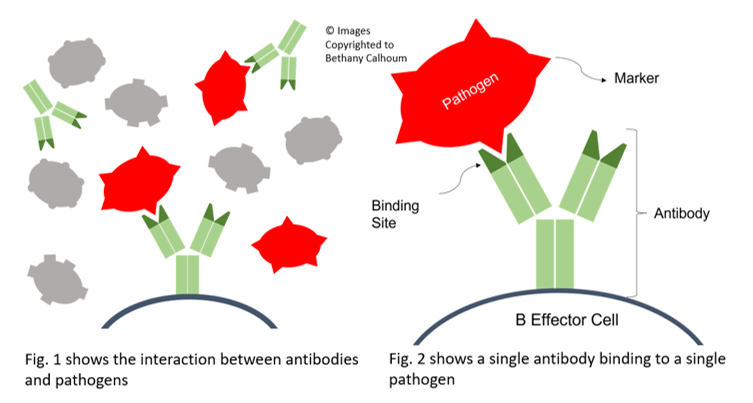If you have followed us here at My Pet Nutritionist for any length of time, you’ll know that we’re great advocates for the inclusion of veggies for their prebiotic and fibrous benefits. But there are also times where we would avoid certain veggies.
Keen to learn more? Read on.
Nightshade Vegetables and Arthritis
Some believe that the solanine contained in nightshade vegetables like bell peppers, tomatoes and potatoes may increase levels of inflammation in the body.
Whilst there is disagreement over the mechanism, humans suffering with arthritis often report a worsening of symptoms after eating nightshade vegetables. There is one school of thought that it could be more to do with a sensitivity to the food, which results in an inflammatory response, contributing body wide circulating cytokines.
Whilst nightshade veggies are a great source of certain nutrients, there are other foods which can provide these and so if you notice a worsening of arthritic symptoms, it’s an easy change to make.
Natural Arthritis Guide
Lectins and Should My Dog Eat Them?
Goitrogenic/Cruciferous Veggies in Thyroid Issues
The thyroid gland produces three important metabolic hormones, thyroxine, triiodothyronine, and calcitonin.
Thyroid stimulating hormone (TSH) produced by the anterior pituitary gland controls the production of these hormones.
Iodine, derived mainly from sea-foods or consumed in the form of iodised salt, is utilised for producing T3 and T4 hormones.
T3 and T4 hormones affect every cell and organ in the body. They regulate the rate at which the body uses energy, which subsequently affects weight loss or gain. They raise or lower body temperature. These hormones influence the speed at which food moves through the digestive system. They affect brain development and also control the way muscles contract.
Common thyroid disorders in our pets include hypothyroidism and hyperthyroidism, meaning the thyroid is either under-active or overactive.
Ultimate Guide: Hyperthyroidism
Ultimate Guide: Hypothyroidism
Goitrogens are plant chemicals that can decrease the production or activation of thyroid hormone, meaning they slow thyroid function.
These foods are commonly known as goitrogenic, which means they contain substances which slow the thyroid’s ability to uptake iodine. If eaten in excess, these foods interfere with the efficient function of the thyroid gland.
The strongest goitrogens are soy products, but moderate inhibitors include:
- Broccoli
- Cabbage
- Kale
- Cauliflower
- Brussels sprouts
All/Starchy Veggies in Yeast Issues
Around 150 strains of yeast are thought to utilise starch as a sole carbon source for aerobic growth. In short what this means is starch is food for yeast!
Starch, or amylum, is a complex carbohydrate that exists in many foods, including grains, vegetables, and fruits. Sources of starch are primarily:
- Maize
- Tapioca
- Wheat
- Potatoes
The extraction of pure starch from food produces a white, tasteless, and odourless powder that doesn’t dissolve in cold water or alcohol.
Starch is a natural polymer, or polysaccharide, meaning that it is a long chain comprising one type of molecule. Starch consists of glucose molecules. It can occur in two forms: amylose and amylopectin. You may be familiar with this wording as
amylase is a digestive enzyme which helps break down starch.
Yeast or candida is an opportunistic fungal pathogen but a normal part of the gastrointestinal flora and genital tracts. The issue is when there’s an overgrowth. If we are tackling an overgrowth, the last thing we want to do it continue feeding it and as you’ve now realised, starch is a great food source for yeast!
Is Your Dog A Yeasty Beasty?
All Veggies in the Case of An Elimination Diet
When we are supporting a dog with digestive issues, we need to know exactly what is contributing to their symptoms. For this reason, we would avoid feeding all vegetables when running an elimination diet.
Just like a dog can have a sensitivity to a certain meat type like chicken or beef, they can also have a sensitivity to fruits and vegetables.
It’s important to remember that an elimination diet is a diagnostic tool – not a long-term lifestyle and in some cases, a means to give the immune system a welcomed break.
In running an elimination diet, we follow the 4 R’s.
–
Remove – remove offending foods, one at a time and note changes in symptoms. Quite often, even offending foods can be reintroduced at a later stage.
–
Repair – support immunity and gut healing with ingredients like slippery elm, de-glycerised liquorice, glutamine, and N-acetyl-glucosamine. It is also important to consider how existing medications are affecting gut healing for example, steroid use impairs intestinal absorption which is linked to several gastrointestinal dysfunctions.
–
Restore – as the microbiome is key in the development of the immune system, supporting this is essential, however, the introduction of specific pre and probiotic foods is often best left whilst we get to the root cause.
–
Replenish – indigestibility of food proteins can also contribute to their antigenic nature, so consider any long-term medication use including proton pump inhibitors which affect gastric acid secretion. Ensuring HCL, pepsin and digestive enzymes are in good supply will help get the digestive system back to doing what it does best!
Elimination Diets For Dogs
We can’t deny the fibrous benefits of many vegetables along with their nutrient content, but when we are tackling a specific health issue in a pet, we must prioritise. We can often get those benefits in other ways if we think outside of the box.
If you would like any support with your pet’s health and some outside of the box thinking, then please check our services to see how we can help.
Thanks for reading,
MPN Team








